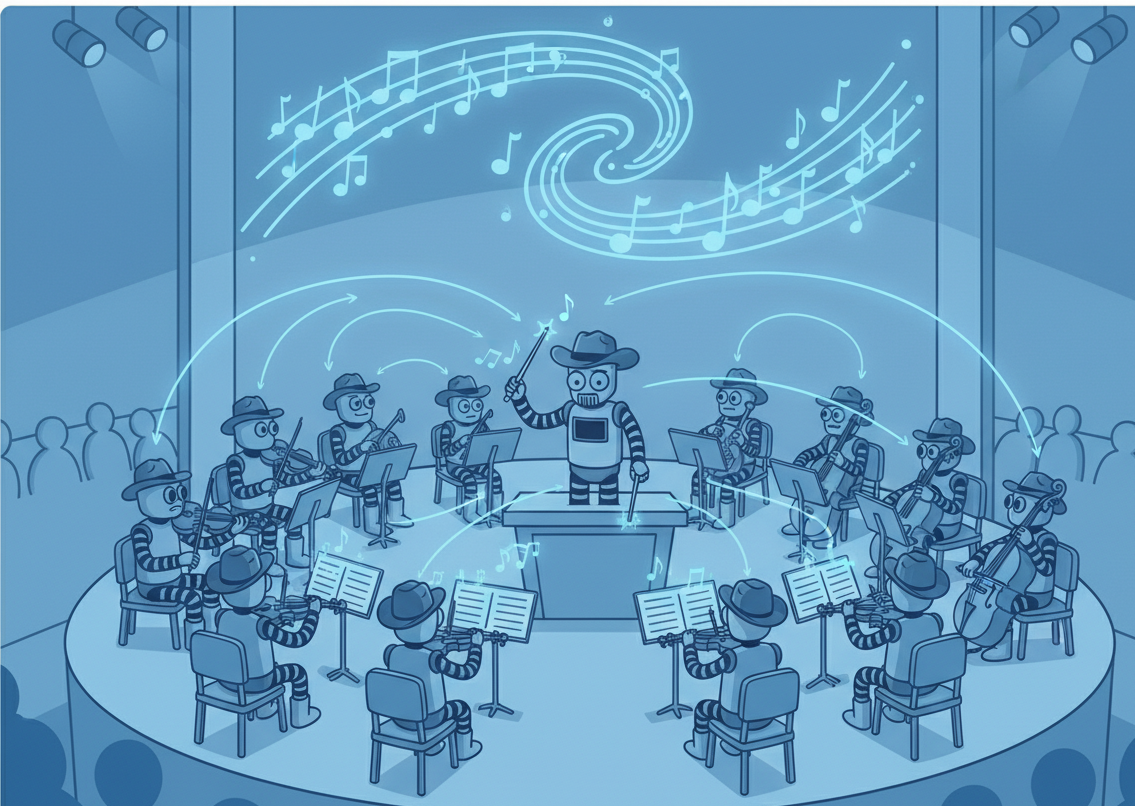GPT-OSS: First Impressions of OpenAI's New Open Weight Models

OpenAI just dropped two fully open LLMs: game-changer or nothing burger?
After years of closed models, OpenAI has stunned the AI community by releasing the open-source models GPT-OSS 120B and GPT-OSS 20B under a fully permissive Apache 2.0 license. These are the company's first open-weight language models since 2019, and the reactions have been as polarized as they are passionate. While some developers are hailing this as a watershed moment for AI accessibility, others are questioning whether the models live up to the hype.
Let's unpack the early praise, the pointed critiques, and what GPT-OSS could mean for developers, researchers, and businesses navigating the rapidly evolving AI landscape.
Release Snapshot: OpenAI Goes Open
GPT-OSS marks the company's return to open-source AI after focusing exclusively on proprietary, API-gated models for nearly six years. The release includes two variants: a 120B parameter model designed to run on a single 80GB GPU (like Nvidia's H100) and a more accessible 20B version that can operate on consumer-grade hardware.
This represents a fundamental shift in OpenAI's recent approach. Instead of requiring developers to make API calls to OpenAI's servers, with all the associated costs, latency, and data privacy concerns, teams can now download the model weights directly and run them wherever they choose.
The timing is particularly noteworthy. International competitors have gained ground in the open-source AI race. OpenAI has responded.
Where is the Hype Coming From?
Privacy and Local Control
The most immediate appeal of GPT-OSS lies in what it doesn't require: sending your data to external servers. For organizations handling sensitive information, whether that's healthcare data, proprietary code, or confidential business intelligence, the ability to keep everything on-premises is transformative.
As the Hugging Face team noted in their enthusiastic welcome, they're "super excited to welcome OpenAI to the open-source community," particularly highlighting how private, on-device deployments will benefit users who need complete data sovereignty.
Broad Accessibility with No Vendor Lock-in
The Apache 2.0 license removes virtually all barriers to adoption. Developers can use, modify, and deploy GPT-OSS for any purpose, including commercial applications, without licensing fees or usage restrictions. This permissive approach, combined with the models' efficient design, democratizes access to advanced AI capabilities.
Smaller organizations and independent researchers, previously priced out of state-of-the-art AI, can now download the weights and begin experimenting immediately. No subscription fees, no rate limits, no terms of service changes to worry about.
Impressive Price-to-Performance Ratio
Early benchmarks suggest GPT-OSS delivers legitimate competitive performance. OpenAI reports that the 120B model achieves near-parity with their proprietary "o4-mini" variant on core reasoning tasks. Developer Simon Willison called the release "really impressive" for its ability to match OpenAI's smaller proprietary models while running efficiently on local hardware. Beyond raw performance, users are praising practical features like structured output formatting and integrated tool-use capabilities.
Early Critiques: The "Math Model" Problem
Not everyone is convinced GPT-OSS represents a breakthrough. The criticisms center on three key limitations:
Narrow Specialization Over General Intelligence
Critics argue that while GPT-OSS excels at technical benchmarks, math problems, coding challenges, and logical reasoning, but it struggles with broader language understanding and creativity. Early testers have noted instances where the model awkwardly inserts equations into poetry or fails to grasp nuanced human communication.
The emerging consensus labels it a "math model," powerful within its specialized domains but lacking the well-rounded intelligence users expect from modern LLMs.
Knowledge Gaps from Synthetic Training
There's growing speculation that OpenAI trained GPT-OSS heavily on AI-generated synthetic data to sidestep copyright and safety concerns. While this approach may have legal and ethical advantages, community members believe it has left the models with uneven real-world knowledge.
Skepticism About Long-term Impact
Perhaps the harshest criticism comes from those questioning whether GPT-OSS represents meaningful progress. Pseudonymous AI researcher Teknium dismissed the release as "a legitimate nothing burger," predicting it will be quickly surpassed by other models.
Others point out that while GPT-OSS may be the most capable open model from a US company, it still trails the best international open-source offerings. There are also concerns about OpenAI's commitment to ongoing updates: will these models receive continuous improvements, or was this a one-time gesture?
The Verdict: Milestone or Momentary Buzz?
What's undeniable is that OpenAI's open-source move significantly widens access to advanced AI capabilities. Whether that access translates to meaningful real-world value depends on how well the models perform beyond their specialized strengths, and whether OpenAI commits to ongoing development of these open offerings.
The next few weeks will be telling. As developers, researchers, and businesses put GPT-OSS through its paces across diverse use cases, we'll discover whether this release marks a genuine milestone in AI accessibility or simply generates momentary buzz before being eclipsed by the next wave of models.
PromptLayer is an end-to-end prompt engineering workbench for versioning, logging, and evals. Engineers and subject-matter-experts team up on the platform to build and scale production ready AI agents.
Made in NYC 🗽
Sign up for free at www.promptlayer.com 🍰



